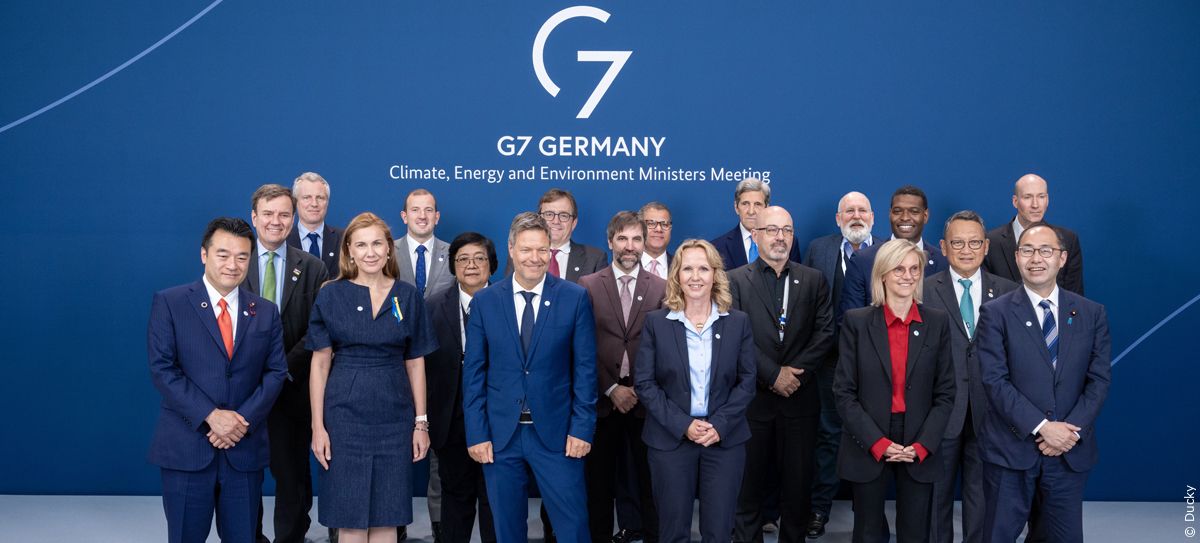Meeting of the G7 ministers for climate, energy and environment | Berlin, 26-27 May 2022

date: 01/07/2022
The Communiqué adopted at the conclusion of the meeting included the following key outcomes for the environment:
- Biodiversity: A new post-2020 global biodiversity framework must be adopted this year. This means the UN Conference on Biological Diversity (COP 15.2) must be held in 2022. Biodiversity loss is rapidly advancing worldwide, and the impacts are dramatic. It cannot be put off any longer.
- Biodiversity finance: National and international finance for nature is to be significantly increased by 2025. The G7 commit to mobilising financial resources from all sources, including public sources. At international level, this sends a message in support of increasing budgetary funds for international biodiversity finance.
- Nature-based solutions: The G7 committed to implementing nature-based solutions while observing robust social and environmental standards. Protecting and restoring forests and peat lands stores CO2, thereby contributing to the achievement of climate targets and also helping preserve biodiversity.
- Oceans: The G7 are sending a joint signal for ambitious marine protection and conservation. They agreed an Ocean Deal that includes protection of biodiversity beyond national jurisdictions and conservation efforts in the Antarctic. Agreement was also reached on environmental standards in deep sea mining. In future, the G7 countries will only support deep sea mining if it does not cause serious environmental harm. The marine area of the Antarctic is recognised as a highly sensitive and species-rich ecosystem with a key role in the global climate system. The G7 supports the designation of strictly protected areas in the region.
- Plastic pollution: The G7 countries made a voluntary commitment to take measures against plastic pollution ahead of a global agreement on the issue.
- Resource efficiency: In the Berlin Roadmap, the G7 adopted an ambitious 3-year work plan containing concrete measures to enhance resource efficiency. Cooperation in all relevant sectors should be intensified with the goal of a true circular economy.
- Chemicals: The G7 agreed measures to strengthen global sustainable chemicals management. This affirmation from the G7 will give momentum to the International Conference on Chemicals Management.
- Sustainable supply chains: The G7 are committed to supporting a transition to environmentally sustainable supply chains which are net zero aligned and climate resilient, reduce pollution, decouple agricultural production from forest loss and land degradation, use resources sustainably, reduce product environmental impact, foster circular economy, and are nature-positive. The G7 recognises that the protection of human rights, the environment and climate are inextricably linked. They encourage companies to contribute, through their supply chains, to the achievement of environmental, social and economic sustainability goals worldwide.
More information:
